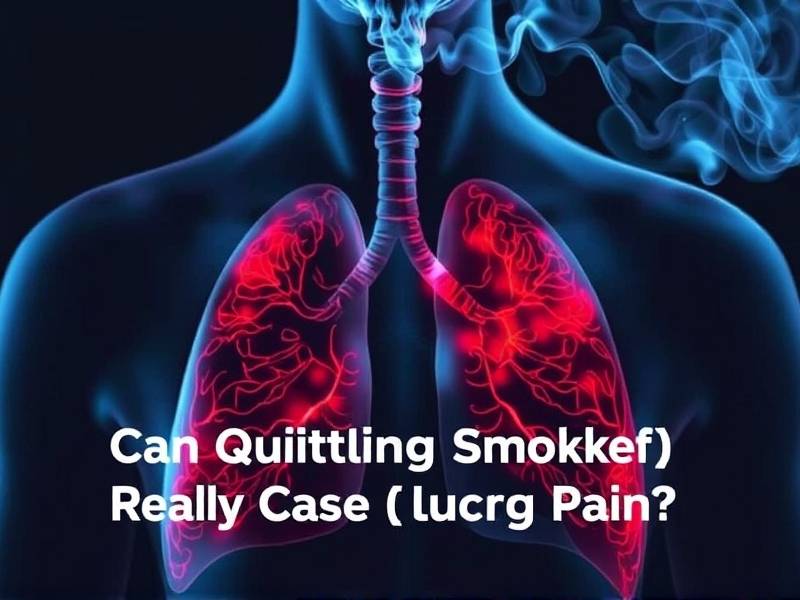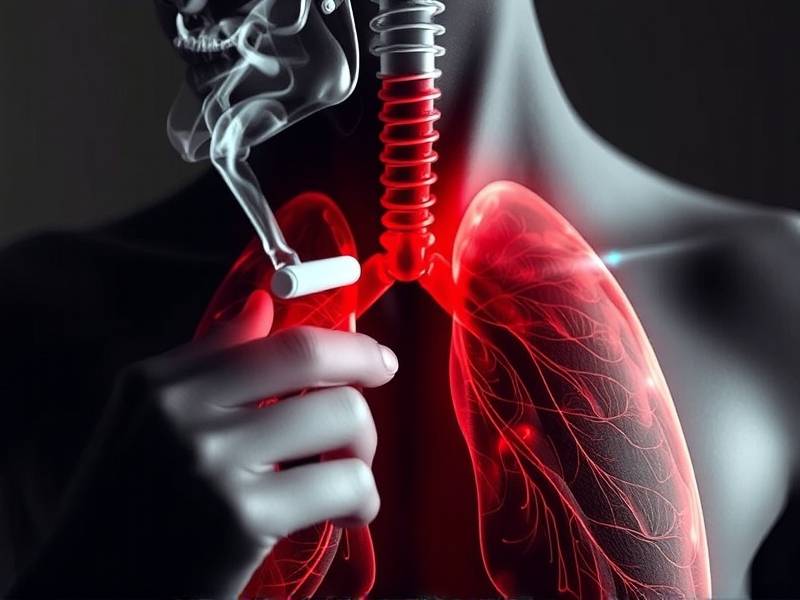Can Quitting Smoking Really Cause Lung Pain?
Understanding the Link Between Smoking Cessation and Lung Pain
Introduction: The Common Concern

One of the most daunting challenges for smokers who are contemplating quitting is the fear of experiencing discomfort or pain during the process. A common concern is whether quitting smoking can actually cause lung pain. This article aims to delve into this issue, exploring the science behind it and providing insights to alleviate any fears.
What is Lung Pain?
Lung pain refers to discomfort or a sharp sensation felt in the chest or upper back area. It can be caused by various factors, including infections, injuries, or underlying respiratory conditions. When it comes to smoking cessation, it's important to differentiate between normal withdrawal symptoms and actual lung pain.
The Role of Nicotine Withdrawal
Nicotine, a highly addictive substance found in tobacco, plays a significant role in nicotine withdrawal symptoms. When someone stops smoking, their body goes through a series of changes as it adjusts to the absence of nicotine. This adjustment period can lead to a range of symptoms, including:
- Increased heart rate
- Elevated blood pressure
- Increased anxiety
- Irritability
- Headaches
While these symptoms can be quite uncomfortable, they are generally not severe enough to cause lung pain.

Can Quitting Smoking Cause Lung Pain?
The answer is no. Quitting smoking does not directly cause lung pain. However, some individuals may experience mild discomfort in their chest area during the initial stages of withdrawal. This could be due to several factors:
-
Coughing: As your body starts to clear out mucus and tar from your lungs, you may experience increased coughing. While this can be uncomfortable, it is a normal part of the healing process.
-
Breathing Changes: As your lungs begin to heal and expand after years of smoking-induced constriction, you might feel some mild pressure or tightness in your chest.
-
Muscle Strain: The act of deep breathing can sometimes strain muscles around the rib cage and chest wall, leading to temporary discomfort.
It's important to note that these sensations are usually short-lived and should diminish as your body adjusts to its new smoke-free state.
Seeking Professional Advice
If you're experiencing persistent or severe chest pain after quitting smoking, it's crucial to consult with a healthcare professional. They can rule out any underlying conditions that may be causing the pain and provide appropriate treatment if necessary.
Conclusion: Embracing Change with Confidence
Quitting smoking is a significant step towards improving your health and well-being. While there may be challenges along the way, understanding that quitting does not directly cause lung pain can help alleviate some fears and make your journey smoother.
Remember that support from friends, family, or support groups can make a significant difference during this transition period. Embrace change with confidence and take each day as it comes—your lungs (and overall health) will thank you for it!
